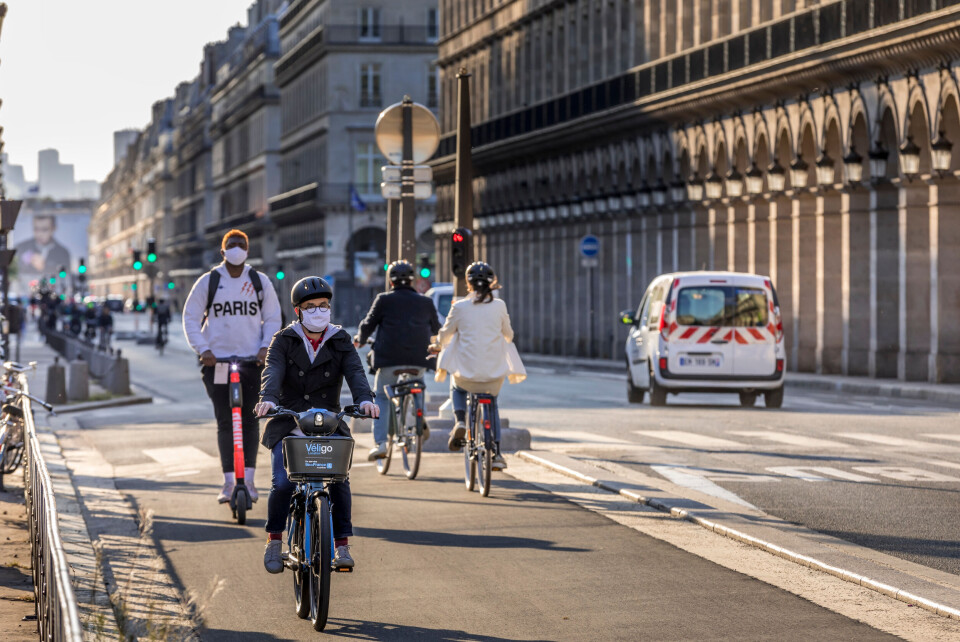-
French crisps brand gains global attention after Dua Lipa post
Singer posted photo of her shopping basket and the only food items were Brets crisps in braised chicken, honey mustard, and ‘Fromage du Jura’ flavours
-
Why supermarkets are urging shoppers to buy French leeks
Try our French classic leek vinaigrette recipe
-
New bill targets skiers under influence of alcohol or drugs
There are not currently any specific rules on skiing while under the influence
What next as state-of-emergency Covid measures end in France?
Will a second booster be recommended for all? Has France now achieved collective immunity? France’s vaccine chief replies to questions as he prepares to step down

France’s Covid ‘state of emergency exit plan’ came to an end on July 31, meaning that most of the measures still in place in the country have now expired.
Health passes, curfews and capacity limits are no more
The end of the Covid state of emergency also means that the government can no longer impose health pass requirements at French borders or in health and care settings.
People may now move freely into the country and through these spaces without needing to show proof of vaccination, a negative test result or a certificate of recovery from Covid.
Read more: Covid-19: Rules for travel to and from France
It also means that the government no longer has the power to bring back restrictions such as curfews, lockdowns or venue capacity limits.
Read more: Covid France: seventh wave ebbs but public urged to remain cautious
The end of official Covid advisory bodies
Yesterday also marked the dissolution of the government’s Covid advisory body, the Conseil scientifique, which has been tracking the development of the epidemic for the past two years.
The Conseil will be replaced by a committee charged with observing the situation and anticipating its future evolution.
It will be made up of 19 scientific experts – some of whom were also in the Conseil scientifique – but it will no longer be headed up by Jean-François Delfraissy.
The new committee is also responsible for watching over France’s vaccination campaign, so the Conseil d’orientation de la stratégie vaccinale will be winding down its work as well.
Will everyone be recommended to get a second booster dose?
Alain Fischer, who had been in charge of France’s vaccination strategy, will therefore be stepping down, although he will still be there to advise the government.
In an interview with La Dépêche, Prof Fischer was asked whether the second booster dose campaign - which is currently open to the over-60s and other more vulnerable groups – could be extended to the whole population.
He said: “It is not recommended. At the moment, if a healthy 40-year-old wants to get another booster, no one will prevent them but it is not specifically recommended because these people are well-protected by the vaccinations that they have had previously.
“It is not these people who are [generally] at risk of being admitted to hospital.”
Read more: Five million more people in France offered extra Covid booster
“The BA.5 subvariant [of Omicron] does not cause more serious illness than previous variants.
“In fact, since BA.1 (Omicron), all the variants have been more transmissible, which explains why there have been a lot of cases over the past few months, but less severe in terms of virulence, which was not the case, for example, in autumn 2021 with the Delta variant.
“Things would change if we had a new variant which appeared and provoked an infection which was as serious as Delta. In this case, we would probably have to recommend another booster to the whole population.”
Prof Fischer was also asked whether the French population has achieved collective immunity thanks to the vaccination campaign. He replied: “We cannot reach collective immunity in the same way that we hoped at the beginning of the vaccination campaign, because at that time, at the beginning of 2021, the variant circulating was a lot less transmissible.
“However, vaccination does reduce transmission, reduce the number of cases and, above all, prevent serious forms” of the virus.
Two state powers are maintained
The law enabling the government to impose Covid monitoring measures and restrictions has now been replaced by another, which was adopted by Parliament on July 26.
This enables the government to maintain the use of the SI-DEP test result database, which helps health authorities to follow the evolution of the epidemic and specifically any rises in case infection numbers.
If a new, dangerous variant of Covid were to emerge, the government will also retain the power to oblige international travellers arriving in the country to present a negative test result. This would apply to vaccinated and unvaccinated people.
If this measure were to be introduced, it would only last for a maximum of two months, after which time it would have to go through Parliament to extend the measure.
Read more: MPs pass amended bill to allow France to impose Covid border checks
The possibility of introducing such a testing requirement will last until March 31, 2023.
Related articles
French MPs and senators agree on new potential Covid border checks
Senate votes to keep ability to impose Covid pass at French borders
























